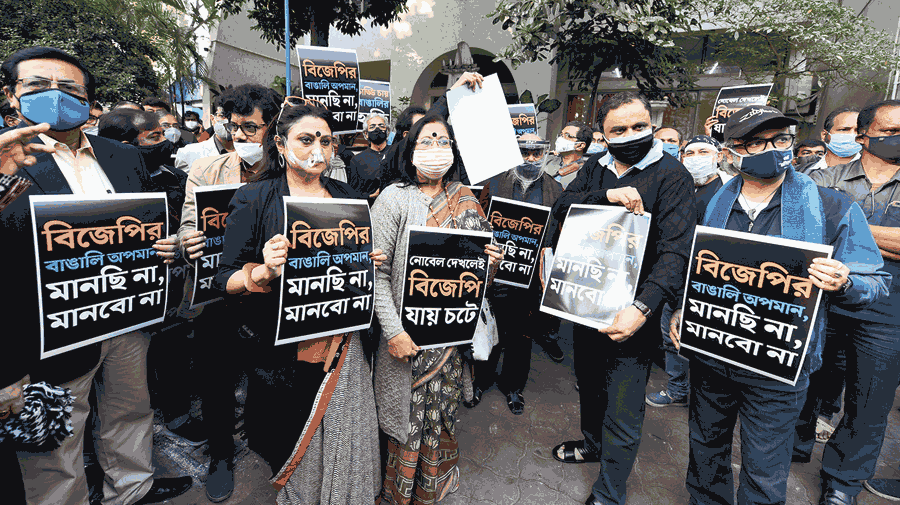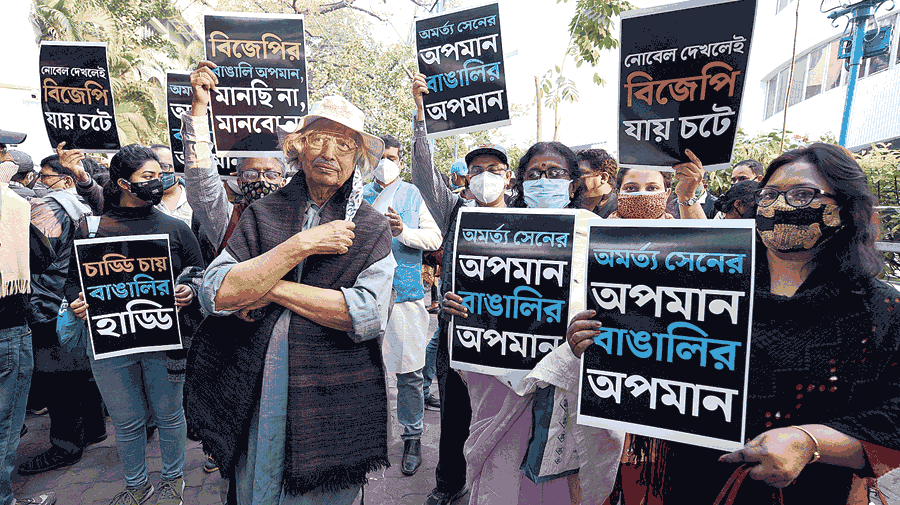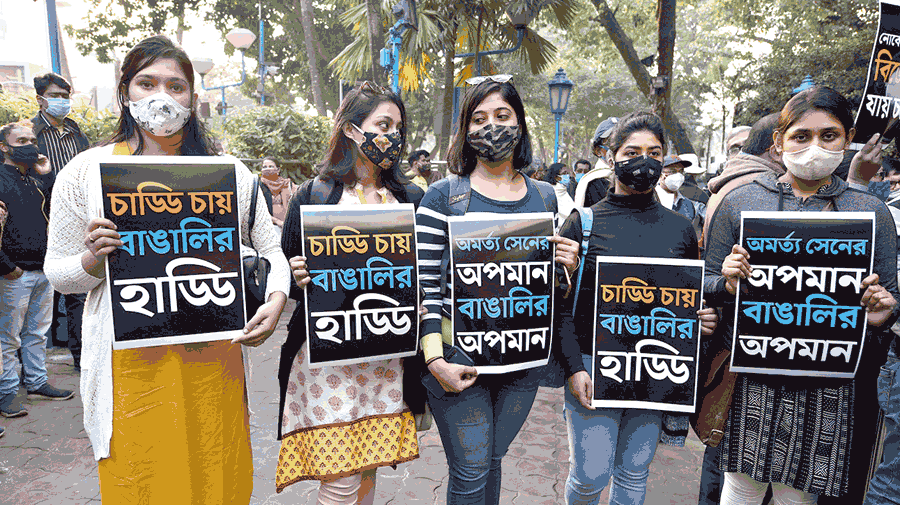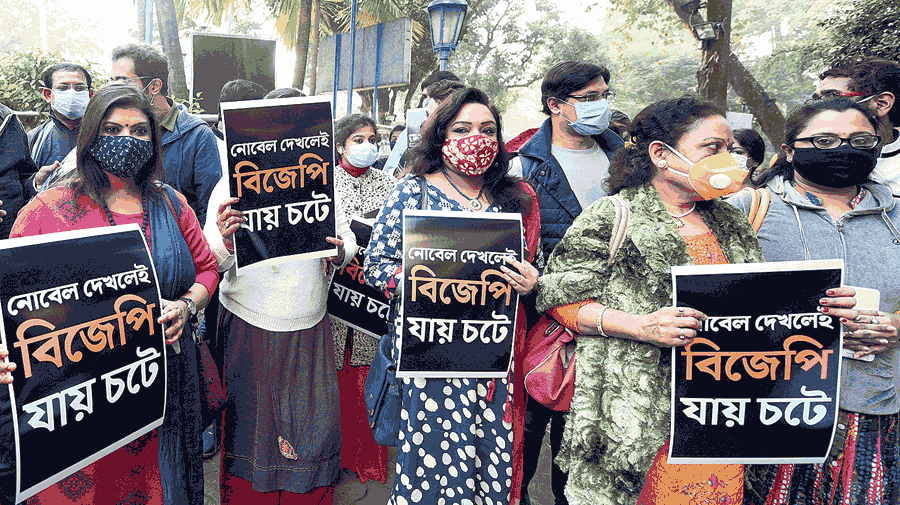A gathering in front of Paschimbanga Bangla Akademi on Sunday protested the treatment being meted out to Nobel laureate Amartya Sen by the Visva-Bharati authorities.
Many of the protesters said the university authorities were trying to silence the author of The Argumentative Indian because he dared to argue against the policies being pursued by the Narendra Modi government.
According to the Visva-Bharati estate office, it had recently prepared a list of “illegal occupants” that includes the name of Sen as his house, Pratichi, occupies around 138 decimals while the original lease was given on 125 decimals.

Protesters in front of Bangla Akademi on Sunday afternoon. Gautam Bose
Sen had last week old The Telegraph: “The Visva-Bharati land on which our house is situated is entirely on a long-term lease, which is nowhere near its expiry. Some additional land was bought by my father as free hold and registered in land records under mouja Surul.”
The protest by students, teachers, cultural activists, politicians and others started around 3.30pm.
Poet Joy Goswami said it should have been a matter of pride for Visva-Bharati that a person like Amartya Sen stays in Pratichi. “Instead, the university authorities are defaming him,” Goswami said.

Protesters in front of Bangla Akademi on Sunday afternoon. Gautam Bose
“The objective of the attack (on Sen) the Visva-Bharati authorities have launched at the behest of the Centre is to attack the very essence of The Argumentative Indian. The BJP will not brook any voice of dissent. They will not tolerate any criticism,” said actor-director-playwright and state minister Bratya Basu.
“The sole crime that Amartya Sen might have committed is that he dared to speak against the BJP.”
The Argumentative Indian is a collection of essays that discuss India’s history and identity, focusing on the traditions of public debate and intellectual pluralism.
Sen had last week said in response to a question from The Telegraph: “Having been born and brought up in Santiniketan, I could comment on the big gap between Santiniketan culture and that of the VC, empowered as he is by the central government in Delhi, with its growing control over Bengal.”
Many of the protesters were college and university students from the city as well districts. They carried posters that read “Amartya Sen-er apomaan, Bangalir apomaan” (insulting Amartya Sen amounts to insulting the people of Bengal).
Rimona Das, a third-year student of Sarojini Naidu College for Women in Dum Dum, said she joined the protest because the attack on Sen had hurt her sentiments.
“How can I, being a Bengali, tolerate the insult to Amartya Sen? I have taken a stand. Nobody has pushed me for this. The actions of the university have hurt my sentiments. I am not even aware whether any political party is organising the protest,” said Rimona.

Protesters in front of Bangla Akademi on Sunday afternoon. Gautam Bose
Standing next to her was Debanjana Banerjee, a first-year student of West Bengal State University, Barasat.
“The BJP is saying it will build Sonar Bangla, at the same time it is humiliating Bengalis. Amartya Sen has an opinion of his own, which you may not like. But does that mean you will call him an illegal occupant?” asked Debanjana.
Sayani Bhaumik, a student of Netaji Subhas Open University, saw signs of autocracy in the attack on the Nobel laureate. “It is like imposing your writ on whoever dares to argue. This is autocracy,” said Sayani.
Poet Subodh Sarkar said Visva-Bharati was relentlessly trying to malign Amartya Sen in the hope that he would finally stop questioning its ideology and policies. “We have seen these attempts in Delhi. Now, the BJP is doing this in Bengal. They want to silence this argumentative quality of the country,” he said.
Shankar Bose Thakur, a script writer attached to a theatre group, said the BJP government at the Centre was doing what the Pakistan government had done in the then East Pakistan in the 1960s “The Pakistan government had constantly hurt the Bengali sentiment and culture in East Pakistan. The BJP is doing the same,” he said.
The hour-long protest ended with everybody singing Tagore’s song “Banglar maati, Banglar jawl”.











